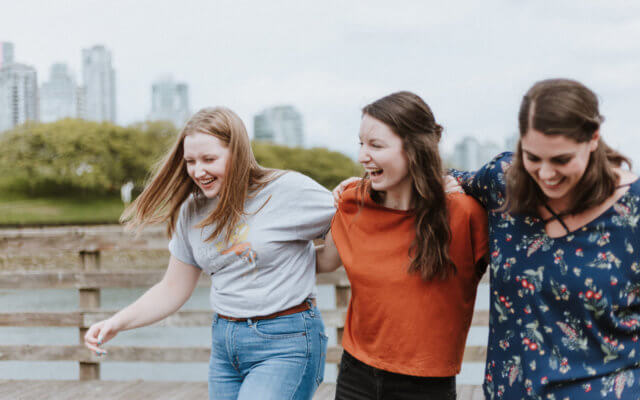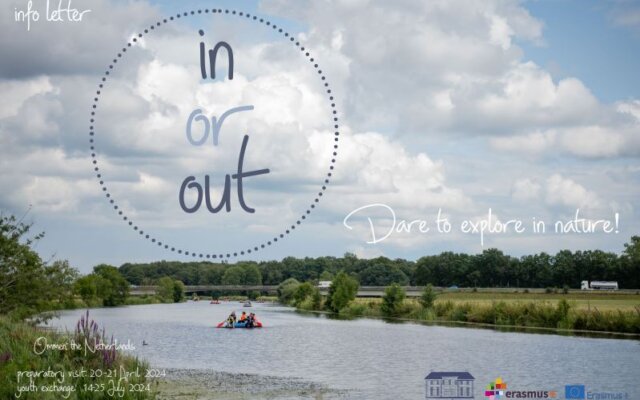ERASMUS+, Key action 1: youth exchange
Venue: Tirrenia, Pisa, Italy
The timetable for this mobility:
- Advance Planning Visit = APV: 21—23 August 2024.
- Youth exchange: 30 September—7 October 2024
Czech team: 5 participants + 1 group leader
Please read the info-pack.
Hosting organisation: NUI NGO
Project report:
As indicated by the title Storytime Myth and Legends Across Europe, the project focused on local legends and myths from various European countries. During the Advanced Planning Visit, we met the project organizers, brothers Elia and Martino. Elia has extensive experience with various Erasmus projects, while Martino is a professional filmmaker. They combined their skills and knowledge to create their first project, which turned out to be impressively large-scale, with around 50 young people from nine different EU countries participating.
One of the long-term aims was to rehearse a theatrical performance, which would also be recorded as a film by Martino. Each country had the task of selecting a national myth, legend, or tale and presenting it theatrically. The entire performance was then performed live at Teatro Nuovo Pisa. Through this, we learned about myths and tales we were previously unfamiliar with, which provided historical insights into the formation of various nations. Each team interpreted the theatre in its own unique way, resulting in amazing and original plays. Some took a more artistic and abstract approach, while others presented the stories more as traditional narratives. We all put a lot of effort into it, and in the end, we were truly proud of ourselves!
Our team chose the legend of Forefather Czech, incorporating music and rhythm into the performance. Poland and Latvia presented stories revolving around a battle for a princess, whom the hero refuses to marry in the end due to her character (stories of Kunegundzie and Tom Thumb). Lithuania portrayed the tragic love story between a sea goddess and a fisherman (The Myth of Jūratė and Kastytis). Malta also focused on the theme of the sea and love with the legend of the goddess Calypso, who fell in love with Odysseus after he was shipwrecked on the island of Gozo. Spain and Portugal highlighted religious themes in their stories. Spain told the tale of The Lover’s Rock, from which two young lovers jumped into the sea to escape the girl’s father and his men. Her father opposed their relationship due to their different religions, as his daughter was Moorish and her partner was Catholic. Portugal shared the story of Saint Sebastian, a young heir to the throne who died during the Crusades in Morocco, fighting against the Muslims. And Hungary performed a legend of a magical deer through expressive dance.
To prepare for our performances, we had a workshop with actors from a local theatre, focusing primarily on conscious movement and self-esteem. In another seminar, we learned about storytelling and how to build up a story. On another day, we shot short films in groups using assigned genres, including a funny reality show, thrilling horror, romantic comedy with a surprising twist, and a superhero movie.
The other main aim of the project was cultural enrichment, which was achieved through various sessions. During one seminar, national groups rotated between posters discussing topics such as values, family and community, food, customs and traditions, holidays, art and music, and language. The Intercultural Nights were also a great success, where we tasted local sweets, bread, drinks, watched informative videos, participated in quizzes, and learned Hungarian and Lithuanian national dances. In return, we taught others the Mazurka dance, which they mastered beautifully, even with the partner changes in a circle! We also participated in a workshop on identity, where we created collages using various newspapers and magazines, helping us to get to know the other participants better.
As I also said in my goodbye speech during the YouthPass ceremony, fifty strangers came to the project, but despite the large number, we bonded incredibly well, and each of us formed a few special connections. We all left richer for the experience, cultural knowledge, and new friends. A great group of young, ambitious, and engaged people came together, all of whom want to make positive changes in their communities. We inspired and motivated each other! And I must say, it was the first time I experienced such strong bonds even within the Czech team itself.
The organization of transport to the venue was well-communicated and the APV visit was very helpful in this regard. We stayed at Hotel Olympic Beach – Centro Le Torri near the town of Tirrenia, about 40 minutes by bus from Pisa. The hotel staff and service were absolutely fantastic. The food was amazing, with a choice of four options at lunch and dinner, including at least one vegetarian dish. Most meals were from Italian cuisine, accompanied by a salad bar and desserts. Overall, we were well taken care of!
I must congratulate Elia on his idea and execution of the project. For a first project of a new organization, it turned out to be very successful. There are a few organizational details that could be improved for next time to make everything run more smoothly. But the performances were a success, with each team giving their best efforts to the final play, and we all learned something new about other countries. In my opinion, the project’s goals were achieved!
Thank you, NUI Pisa and EYCB, for this opportunity.
Lenka S.
P.S. This was my first time as a group leader, and I must say that I felt very comfortable in my role, mainly thanks to my amazing group. <3 Given my profession as an elementary teacher, I am used to leading young pupils, but it was my first time leading adults in this way. I really enjoyed it, and it helped me discover new skills within myself that I would like to develop further.


